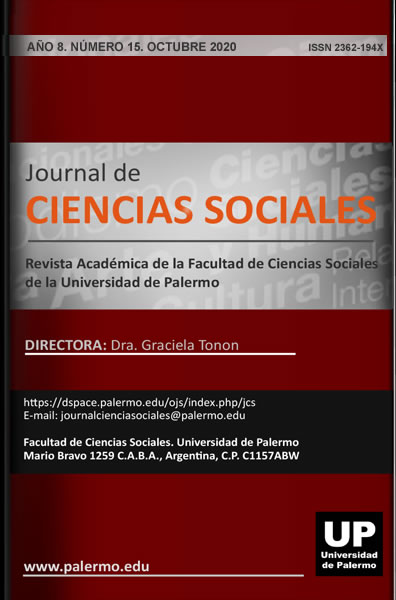Measuring Sustainability
Using the Capabilities Approach in Sustainable Development Assessment
Abstract
El Enfoque de Capacidades (Capabilities Approach) es un marco teórico con dos reclamos normativos centrales: primero, que la libertad para lograr el bienestar es de importancia moral primaria, y segundo, que la libertad para lograr el bienestar se entiende en términos de las oportunidades de las personas para lograr lo que tienen razones para valorar. Medir las libertades y las oportunidades es difícil. El bienestar se evalúa utilizando indicadores tales como ingresos, educación y esperanza de vida, capturando así una comprensión social del bienestar. El bienestar individual es más cualitativo, medido por encuestas y explicado a través de estudios etnográficos. Tanto el bienestar objetivo como el individual se refieren a las condiciones materiales, la calidad de vida y la sostenibilidad tal como se abordan a través del Enfoque de Capacidades. La metodología de investigación etnoeconómica de métodos mixtos (EERM) proporciona el contexto y el contenido en el que el bienestar puede entenderse tanto objetivamente (cuantificado) como individualmente (calificado). EERM brinda a las personas estudiadas la libertad y la oportunidad de definir, medir y comparar su propio bienestar a lo largo del tiempo. Los indicadores son simultáneamente objetivos y sociales, pero también subjetivos e individuales. Al empoderar a los participantes para que participen y midan su propio desarrollo, el Enfoque de Capacidades puede ser mejor entendido, aplicado y criticado. Este artículo científico muestra a través de tres estudios de caso y cinco años de investigación y desarrollo, cómo EERM es una herramienta viable para definir y comprender el bienestar.
Downloads
References
Bhattacharyya, G. K. & Johnson, R. A. (1977). Statistical concepts and methods (Vol. 106). John Wiley & Sons Incorporated.
Chambers, R. (1997). Whose reality counts? Putting the first last. London: ITDG Publishing.
Chambers, R. (2007). Ideas for Development. UK: Earthscan.
Coyle, T. & LeMaster, J. (2011). A more holistic paradigm on sustainable development. International Journal of Trade and Global Markets. Interscience Enterprises Ltd, 4(3), 243-260.
Driscoll, D. L., Appiah-Yeboah, A., Salib, P. & Rupert, D.J. (2007). Merging Qualitative and Quantitative Data in Mixed Methods Research: How To and Why Not. Ecological and Environmental Anthropology (University of Georgia), 3(1).
Ellis, C. & Bochner, A. P. (2000). Autoethnography, personal narrative, reflexivity: Researcher as subject. In N. K. Denzin & Y. S. Lincoln (Eds.), The handbook of qualitative research (pp. 733–768). 2nd ed., Sage. Newbury Park, CA.
Emerson, R. M., Fretz, R. I. & Shaw, L. L. (1995). Writing ethnographic fieldnotes. London: University of Chicago Press.
Fehling, M., Nelson, B. D. & Venkatapuram, S. (2013). Limitations of the Millennium Development Goals: a literature review. Global public health, 8(10), 1109-1122.
Geertz, C. (1973). The interpretation of cultures. New York: Hachette.
Hoey, B. (2011, January). What is ethnography? Retrieved from http://www.brianhoey.com/General%20Site/general_defn-ethnography.htm
James, P. (2015). Urban Sustainability in Theory and Practice. New York: Routledge.
Jorgensen, D. (2020). Principles, Approaches and Issues in Participant Observation. New York: Routledge.
Leung, F. (2009). Spotlight on focus groups. Canadian Family Physician, 55(2), 218-219.
Ponto, J. (2015). Understanding and Evaluating survey research. Journal of the Advanced Practitioner in Oncology, 6(2), March/April,168-171.
Sapir, E. (2004). Language: An introduction to the study of Speech. New York: Dover Language Guides.
Sen, A. (2009). The idea of justice. The Belknap Press of Harvard University Press. Cambridge, MA.
Simpson, N. P. & Basta, C. (May 2018). Sufficiently capable for effective participation in environmental impact assessment? Environmental Impact Assessment Review, 70, May., 57-70.
Stenn, T. (2013). The cultural and political intersection of fair trade and justice. New York: Palgrave.
Stenn, T. (2015-2018). Gender and Sustainable Development in Bolivia. US Fulbright project study. Bolivia.
Stenn, T. (2019). Building Social Enterprises with the Sustainability Lens. Journal of Strategic Innovation and Sustainability,14(3), 98 -110.
Weinstein, M. (2006). TAMS analyzer, anthropology as culture critique in a digital age. Social Science Computer Review, 24(1), 68-77.
Documents
First Peoples. (2011). Traditional talking stick—an American Indian legend—Nation Unknown. Retrieved from http://www.firstpeople.us/FP-Html-Legends/TraditionalTalkingStick-Unknown.html
The authors retain the rights to their work guaranteeing this journal the right of first publication, committing to cite the Journal of Social Sciences as a reference of the original publication.
The works published in the Journal are published under the terms indicated in the Creative Commons License with the International Attribution 4.0 (CC BY 4.0).




























